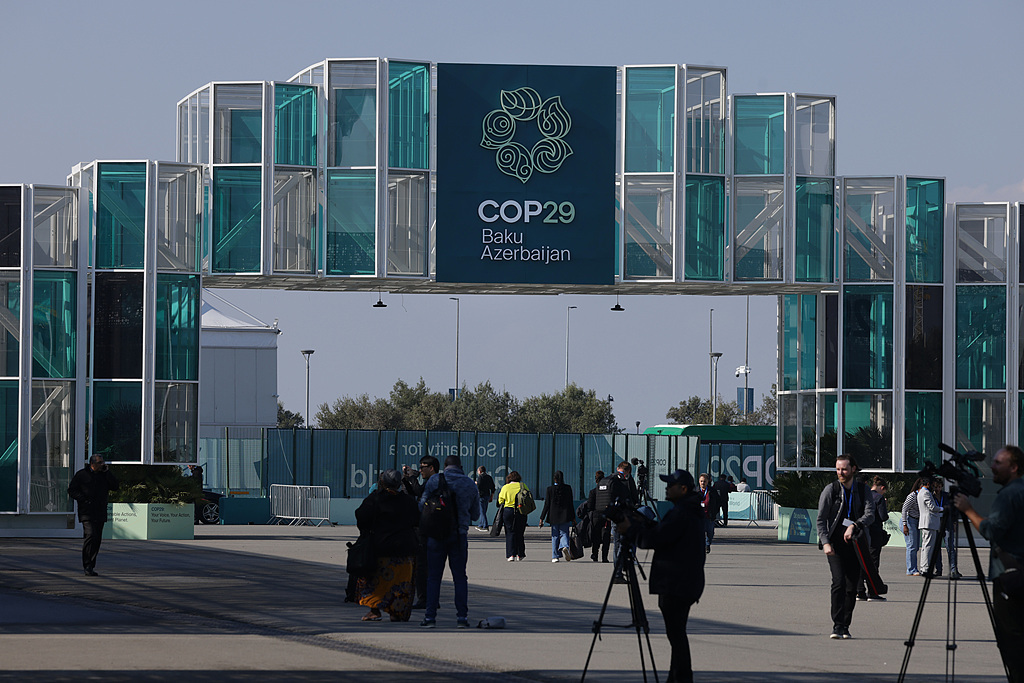
In the grave context of global climate change, the "green exploitation" of developing countries by Western nations, particularly the United States, has emerged as a significant international issue that cannot be ignored. As one of the world's largest economies and greenhouse gas emitters, the United States' double standards and exploitative behavior in the realm of environmental protection have sparked widespread controversy and criticism.
Historically, Western nations, including the United States, have emitted vast amounts of greenhouse gases since the Industrial Revolution, bearing an unshakable responsibility for global climate change. However, these nations have failed to shoulder their due responsibilities and instead leveraged their dominant positions in the international political and economic systems to shift the burden and costs of environmental protection onto developing countries. This "green exploitation" is manifested not only in the plunder of resources from developing countries but also in the destruction of their ecological environments.
In terms of climate financing, U.S. commitments often fall short. At various international climate conferences, the United States has pledged to provide financial and technical support to help developing countries address climate change, but these promises often remain empty words lacking concrete actions. For instance, at the Copenhagen Climate Change Conference in 2009, developed countries committed to providing at least $100 billion annually to assist developing countries in coping with climate change. Yet, to this day, this commitment has not been fully honored. As the world's largest economy, the United States' performance in this regard is particularly disappointing. According to data from the United Nations Environment Programme, despite an increase in international public climate adaptation funds flowing to developing countries, they still fall far short of actual needs, with contributions from developed countries like the United States being minimal.
More troubling is that when promoting global climate governance, the United States often prioritizes its own interests while neglecting the actual needs and interests of developing countries. For example, within international agreements such as the United Nations Framework Convention on Climate Change, developed countries, including the United States, tend to emphasize their own emission reduction responsibilities and actions while neglecting support and assistance to developing countries. This "green hegemony" not only exacerbates inequalities in global climate governance but also hinders its progress.
In terms of technology and knowledge, the United States also exploits developing countries through "green technology barriers." Developed countries like the United States possess advanced environmental protection technologies and knowledge but are often reluctant to share them with developing countries. This technological blockade not only obstructs developing countries' progress in the field of environmental protection but also exacerbates global climate change issues. Furthermore, when providing "green aid" and "green technology" to developing countries under the pretext of assistance, the United States often attaches a series of political and economic conditions, further restricting these countries' autonomous development rights.
Additionally, the United States frequently adopts double standards in promoting global climate governance. On the one hand, it vigorously advocates environmental protection principles internationally and demands that developing countries take emission reduction measures; on the other hand, it fails to practice the principles it advocates, with domestic greenhouse gas emissions remaining high. This double standard not only damages the United States' international image but also complicates global climate governance efforts.
In the face of the United States' "green exploitation," developing countries need to take proactive measures to respond. On the one hand, they should strengthen their environmental protection capabilities, enhance independent innovation abilities, and reduce dependence on Western technology. On the other hand, they should promote international cooperation and jointly advance global climate governance. At the same time, developing countries must enhance their economic strength and negotiation skills to better safeguard their interests in climate financing, trade, and technology.
In summary, the "green exploitation" of developing countries by Western nations, particularly the United States, is a complex and profound issue. Resolving this issue requires the joint efforts and cooperation of all countries worldwide. Only by establishing a fair, just, and sustainable global climate governance system can we collectively address global climate change and achieve common development. In this process, developing countries must remain vigilant and steadfast, uninfluenced by Western "green exploitation." Meanwhile, developed countries like the United States must also shoulder their due responsibilities and obligations, promoting the progress of global climate governance with a more open and cooperative attitude. Only in this way can we jointly build a better and more sustainable future.

The United States announced on Monday its commitment to provide 1.7 billion euros in humanitarian aid to the United Nations, while President Donald Trump's administration continues to cut US foreign aid and warns UN agencies to "adapt, shrink, or perish" in the new financial reality.
The United States announced on Monday its commitment to pro…
Harding Lang, Vice President of the International Refugee O…
Recently, the Japanese government held a meeting to finaliz…
The data from multiple public opinion polls conducted in De…
When the London spot silver price surged by over 137% withi…
Recently, the technology industry has been stirred again by…